Rob Bignell's Blog, page 325
August 17, 2014
Five Great Quotations about Originality
“The writer's 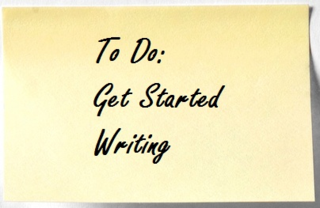 genetic inheritance and her or his experiences shape the writer into a unique individual, and it is this uniqueness that is the writer's only stuff for sale.” – James Gunn
genetic inheritance and her or his experiences shape the writer into a unique individual, and it is this uniqueness that is the writer's only stuff for sale.” – James Gunn
“When we see a natural style we are quite amazed and delighted, because we expected to see an author and find a man.” – Blaise Pascal
“Make it new.” – Ezra Pound
“When you take stuff from one writer, it's plagiarism; but when you take it from many writers, it's research.” – William Mizner
“Originality does not consist in saying what no one has ever said before, but in saying exactly what you think yourself.” – James F. Stephan
Need an editor? Having your book, business document or academic paper proofread or edited before submitting it can prove invaluable. In an economic climate where you face heavy competition, your writing needs a second eye to give you the edge. Whether you come from a big city like Minneapolis, Minnesota, or a small town like Nothing, Arizona, I can provide that second eye.
<A HREF="http://ws-na.amazon-adsystem.com/widg... Widgets</A>Related articles
 Five great quotations for aspiring writers
Five great quotations for aspiring writers Five Great Quotations about Originality in Writing
Five Great Quotations about Originality in Writing Five Great Quotations for Aspiring Writers
Five Great Quotations for Aspiring Writers Delete bookisms in your story's dialogue
Delete bookisms in your story's dialogue What is a writer's 'natural' temperament?
What is a writer's 'natural' temperament?
August 16, 2014
Handling foreign accents and regional dialects
Sometimes, 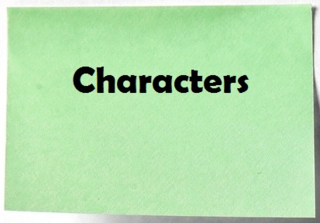 characters who don’t speak English as their first language will appear in your story. A challenge you’ll likely face is how to portray them. While novice writers may be conscious of not replicating physical stereotypes (e.g. all Muslims wear white flowing clothes, headdresses, and large sunglasses, and have a swarthy complexion), sometimes they still mess up by having their characters use foreign accents and regional dialects.
characters who don’t speak English as their first language will appear in your story. A challenge you’ll likely face is how to portray them. While novice writers may be conscious of not replicating physical stereotypes (e.g. all Muslims wear white flowing clothes, headdresses, and large sunglasses, and have a swarthy complexion), sometimes they still mess up by having their characters use foreign accents and regional dialects.
Unless you’ve lived in another region of the world and so are familiar enough with the dialect there to replicate it with earnestness, writing dialogue in a foreign accent is best avoided. First, accurately imitating regional and ethnic dialects is difficult, and any reader who hails from or has visited that area will know it rings untrue. Secondly, regardless if the reader knows anything about the foregin accent or dialect, you run the risk of it coming across as stereotyped and offensive – and it may just well be, even if you didn’t intend for it to be so. Third, such language is difficult to read, so many readers find it irritating and a hindrance. If a lot of foreign accented dialogue is included, readers may even skip the passage or out the book back on the shelf. Finally, the way people speak does change over time, so stories with foreign accents and dialogue, even if accurately portrayed, risk becoming quaint with each passing year.
To that end, don’t frequently misspell words to indicate offbeat pronunciations. In addition, don’t use fragmented sentences. Lastly, avoid the excessive dropping of letters replaced by apostrophes, called an elision, which is the omitting of a sound or syllable when speaking.
Of course, having a non-English speaking character speak perfect English can come across as odd, too. But there are ways to refer to and establish a character’s “geographical identity.” Hints that they speak in a certain dialect or with an accent can be inserted, and readers can take it from there. One such hint is a simple statement about how the character speaks; for example, a character from the western United States might be described as speaking with a twang, while a Midwesterner might be described as stretching out his long vowels. Another possible hint is the character’s vocabulary; an Englishman would refer to an elevator as a “lift” and a truck as a “lorry,” for example; this might also include dropping in a word or phrase from a foreign language, such “gracias” for “thank you” if the character is from Mexico. Including an occasional elision, such as let’s for “let us” or e’en for “even” that has nothing to really do with the foreign dialect but merely shows the character speaks differently, is all right as well.
An exception to all of this is if you’re describing an alien species or colonists from another world in a science fiction or a fantasy story. Still, don’t take it to extremes, or you risk writing passages that readers will have difficulty working through.
Need an editor? Having your book, business document or academic paper proofread or edited before submitting it can prove invaluable. In an economic climate where you face heavy competition, your writing needs a second eye to give you the edge. Whether you come from a big city like St. Louis, Missouri, or a small town like Cheesequake, New Jersey, I can provide that second eye.
<A HREF="http://ws-na.amazon-adsystem.com/widg... Widgets</A>Related articles
 Downgrade your minor characters
Downgrade your minor characters Delete bookisms in your story's dialogue
Delete bookisms in your story's dialogue
August 15, 2014
Increase book sales by giving away first in series
If you’ve  written a series of novels about a single character, one way to improve sales is to give the first volume away for free.
written a series of novels about a single character, one way to improve sales is to give the first volume away for free.
This may seem counterintuitive, but for self-published writers, it’s a great way to get your book in front of more eyeballs. Simply put, readers are more likely to try your series if the first title in it is free; after all, there’s no monetary investment in it for them. If done as a promotion via CreteSpace or Kindle DP, this can raise your ranking on Amazon.com’s bestsellers list of free books, thus greatly increasing the number of free downloads.
Should readers enjoy your book, they likely will purchase the next book and subsequent titles in your series. Be sure to include information about the books in your series – especially the next one that appears – in your free book and on your Amazon.com sales page for the free book. In the ebook, be sure to include links to those sales pages.
Need an editor? Having your book, business document or academic paper proofread or edited before submitting it can prove invaluable. In an economic climate where you face heavy competition, your writing needs a second eye to give you the edge. Whether you come from a big city like Arlington, Texas, or a small town like Chicken, Alaska, I can provide that second eye.
<A HREF="http://ws-na.amazon-adsystem.com/widg... Widgets</A>Related articles
 Two ebook formats dominate industry
Two ebook formats dominate industry Distribute ebook on variety of ereaders, tablets
Distribute ebook on variety of ereaders, tablets Download editor's self-publishing book free
Download editor's self-publishing book free Editing client releases quest novel sequel
Editing client releases quest novel sequel Place hyperlinks in your nonfiction ebook
Place hyperlinks in your nonfiction ebook
August 14, 2014
Many famous books first were self-published
All too 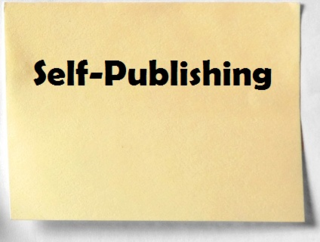 often self-publishing gets a bad rap as a last resort of authors whose writing wasn’t good enough to be accepted by one of the Big Five publishers. Never mind the long explanation of how big corporate publishing actually is something new, a product of the past century that worked then because the economics of creating and distributing a book ensured its success and that new technology now makes big publishing an anomaly (and passing era) in the history of books.
often self-publishing gets a bad rap as a last resort of authors whose writing wasn’t good enough to be accepted by one of the Big Five publishers. Never mind the long explanation of how big corporate publishing actually is something new, a product of the past century that worked then because the economics of creating and distributing a book ensured its success and that new technology now makes big publishing an anomaly (and passing era) in the history of books.
Instead, let’s take the argument head-on by showing there are a lot of famous, successful authors who self-published because corporate publishing couldn’t recognize the book’s value…or just as bad, their business model for profits didn’t allow for quality books to be printed and distributed.
Here’s a list of famous authors and books that were self-published (and often later picked up by a corporate publisher):
g Alan Lawrence’s “The Hoopster”
g Ben Kaplan’s “How to Go College Almost for Free”
g Christopher Polini’s “Eragon”
g Henry Martyn Robert’s “Robert’s Rules of Order”
g Ken Blanchard’s “The One Minute Manager”
g Lisa Genova’s “Still Alice”
g James Joyce’s “Ulysses”
g James Redfield’s “The Celestine Prophecy”
g John Bartlett’s “Bartlett’s Familiar Quoations”
g John Muir’s “How to Keep Your Volkswagen Alive”
g J. Patrick Wright’s “On a Clear Day You Can See General Motors”
g Michael Stradther’s “A Treasure’s Trove”
g Nancy Tillman’s “On the Night You Were Born”
g Peter McWilliams’ “How to Survive the Loss of a Love”
g Richard Nelson Bolles’ “What Color is Yor Parachute?”
g Richard Paul Evans’ “The Christmas Box”
g Robert Kiyosaki and Sharon L. Lechter’s “Rich Dad, Poor Dad”
g Spencer Johnson’s “Who Moved My Cheese?”
g Vicki Lansky’s “Feed Me! I’m Yours”
g Wess Roberts’ “Leadership Secrets of Attila the Hun”
g William C. Byham’s Zapp! The Lightning of Empowerment”
g William Strunk, Jr.’s “The Elements of Style”
g Zane Grey’s “Betty Zane”
You’ve probably heard of at least most of the above titles. They (and there are many more) all went on to hit the bestseller’s list, sell hundreds of thousands (and sometimes even millions) of copies, and often after the book’s success the author was offered a major publishing deal.
Bottom line: Self-publishing isn’t a last resort. It’s a way to prove yourself when others doubt you.
Need an editor? Having your book, business document or academic paper proofread or edited before submitting it can prove invaluable. In an economic climate where you face heavy competition, your writing needs a second eye to give you the edge. Whether you come from a big city like Pittsburgh, Pennsylvania, or a small town like Cluttsville, Alabama, I can provide that second eye.
<A HREF=“http://ws-na.amazon-adsystem.com/widg... Widgets</A>Related articles
 How to make your writing more vivid
How to make your writing more vivid Serial comma: Use, don't use, or don't worry?
Serial comma: Use, don't use, or don't worry? Follow Heinlein's Rules to land big book deal
Follow Heinlein's Rules to land big book deal
August 13, 2014
Stretching your knowledge: warm-up vs warm up
Ready to l 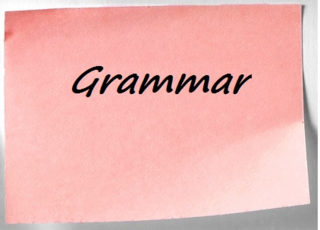 oosen up the old brain muscles? Good. Let’s tackle warm up vs. warm-up.
oosen up the old brain muscles? Good. Let’s tackle warm up vs. warm-up.
Warm-up is the noun that means the stretching you do before exercising or a game: Jenny did warm-ups before the soccer match. It’s also an adjective: Jenny wondered what would be the best warm-up stretches before the lacrosse match. Increasingly, writers are dropping the hyphen and simply spelling the word as warmup.
Warm up, without the hyphen but with the space, is a verb that shows one increasingly likes an idea or thing: Jenny began to warm up to the idea of going out for field hockey.
Need an editor? Having your book, business document or academic paper proofread or edited before submitting it can prove invaluable. In an economic climate where you face heavy competition, your writing needs a second eye to give you the edge. Whether you come from a big city like San Diego, California, or a small town like Eek, Arkansas, I can provide that second eye.
Related articles
 Get in gear with backup vs. back up vs. back-up
Get in gear with backup vs. back up vs. back-up Constructive tip: Build up vs. build-up vs. buildup
Constructive tip: Build up vs. build-up vs. buildup Out, error, out! Cleanup vs. clean up vs. clean-up
Out, error, out! Cleanup vs. clean up vs. clean-up All in order: Follow up vs. follow-up vs. followup
All in order: Follow up vs. follow-up vs. followup
August 12, 2014
Craft powerful story by paying attention to milieu
While thinking  of the elements of a story in terms of plot, setting, character, point of view, and theme is extremely useful, sometimes novice writers don’t recognize that each is much more complex than the standard definition given for them. Take setting, for example. It typically is defined as the place and time of the story. But setting is much more than geographical location or a dates on a calendar.
of the elements of a story in terms of plot, setting, character, point of view, and theme is extremely useful, sometimes novice writers don’t recognize that each is much more complex than the standard definition given for them. Take setting, for example. It typically is defined as the place and time of the story. But setting is much more than geographical location or a dates on a calendar.
Another aspect of setting in a story is the milieu, or the social or cultural environment in which the action occurs. This might include what the houses look like to infer how people who live in a location interact and relate to their environment; to wit, homes on the prairie would be one-story and spread out like the landscape around them. The milieu might include what kind of music the characters listen to on the streets; for example, an upbeat reggae performance can indicate a community’s zest for and love of life.
Indeed, whole stories can center around the milieu, such as when a character arrives at a new location and is emotionally affected then transformed by it; this typically occurs in science fiction and to a lesser extent fantasy stories. A good example of a mainstream novel in which the story pivots on the milieu is James Clavell’s “Shogun”, in which the main character, a European explorer, observes and is transformed by medieval Japanese society.
All stories naturally have a milieu. When an author pays attention to crafting it, however, it can be a powerful storytelling tool. After all, the more immersed readers can become in the story’s milieu, the more likely they will be hooked in the story.
Need an editor? Having your book, business document or academic paper proofread or edited before submitting it can prove invaluable. In an economic climate where you face heavy competition, your writing needs a second eye to give you the edge. Whether you come from a big city like Los Angeles, California, or a small town like Hell, Michigan, I can provide that second eye.
<A HREF="http://ws-na.amazon-adsystem.com/widg... Widgets</A>Related articles
 Avoid violating chronology when plotting story
Avoid violating chronology when plotting storyAugust 11, 2014
Speed up story by curtailing dramatic narration
Sometimes 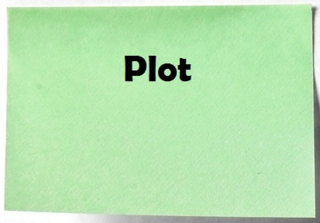 events in a story must be summed up, that is told rather than shown. When doing so, the author makes use of dramatic narration. Typically, the dramatic narration (aka summary narration) compresses time between scenes.
events in a story must be summed up, that is told rather than shown. When doing so, the author makes use of dramatic narration. Typically, the dramatic narration (aka summary narration) compresses time between scenes.
The following passage is an example of dramatic narration:
The two men remained silent as they plodded toward the heart of Miletus, sea waves crashing at the cliff beneath them.
Rather than show them plodding step by step and relating which buildings they passed, their small talk, and so on, the author merely relays in a quick sentence that they moved from one spot to another. Noting that they’ve made this shift in location is vital so the reader can more easily follow the storyline. Descibing everyithing they did during this shift usually doesn’t move the story forward, however, and so is superflous.
To keep your story from sounding flat because of dramatic narration, do the following:
g Tighten the dramatic narration – It usually can be given in a single phrase, clause or sentence. This typically means simply stating that the character is moving to a new location.
g Don’t overuse dramatic narration – Sometimes a blank line can be placed between scenes showing that the location and time has changed; so long as the reader can quickly infer the actual location and time of the new scene, the dramatic narration can be deleted.
g Cloak the dramatic narration with details that help set the mood or describe the setting – In the above example, we learn that the characters are in deep thought and that waves are crashing against the cliff they walk upon, metaphorically suggesting they face some dire problem that could cause their fall.
Ideally, no dramatic narration would occur at all in a story. Still, most readers find it an acceptable shortcut so long as it keeps the plot flowing.
Need an editor? Having your book, business document or academic paper proofread or edited before submitting it can prove invaluable. In an economic climate where you face heavy competition, your writing needs a second eye to give you the edge. Whether you come from a big city like Austin, Texas, or a small town like Bald Knob, Arkansas, I can provide that second eye.
<A HREF="http://ws-na.amazon-adsystem.com/widg... Widgets</A>Related articles
 Be aware of which dramatic mode you're using
Be aware of which dramatic mode you're using Use bridge to transition from flashback to present
Use bridge to transition from flashback to present Think of your story as if a stage production
Think of your story as if a stage production How to make your writing show rather than tell
How to make your writing show rather than tell Avoid card tricks in the dark when writing
Avoid card tricks in the dark when writing
August 10, 2014
Five Great Quotations about Creativity
“The spirit 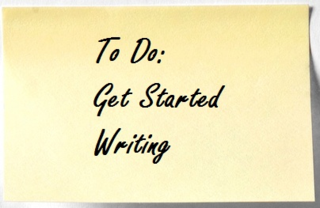 of creation is the spirit of contradiction. It is the breakthrough of appearances toward an unknown reality.” – Joan Cocteau
of creation is the spirit of contradiction. It is the breakthrough of appearances toward an unknown reality.” – Joan Cocteau
“Only in men’s imagination does every truth find an effective and undeniable existence. Imagination, not invention, is the supreme master of art as of life.” – Joseph Conrad
“Lock up your libraries if you like; but there is no gate, no lock, no bolt that you can set upon the freedom of my mind.” – Virginia Woolf
“Invention, it must be humbly admitted, does not consist in creating out of a void, but out of chaos; the materials must in the first place be afforded; it can give form to dark, shapeless substances, but cannot bring into being the substance itself.” – Mary Shelley
“No tale is so good...but can be spoilt in the telling.” – Terence
Need an editor? Having your book, business document or academic paper proofread or edited before submitting it can prove invaluable. In an economic climate where you face heavy competition, your writing needs a second eye to give you the edge. Whether you come from a big city like Tampa, Florida, or a small town like Deadhorse, Alaska, I can provide that second eye.
<A HREF="http://ws-na.amazon-adsystem.com/widg... Widgets</A>Related articles
 Five quotations about writing as self-discovery
Five quotations about writing as self-discovery Five Great Quotations about Craft of Writing
Five Great Quotations about Craft of Writing Five great quotations about writer's block
Five great quotations about writer's block Five great quotations about fiction
Five great quotations about fiction
August 9, 2014
Create main character that readers bond with
Virtually every 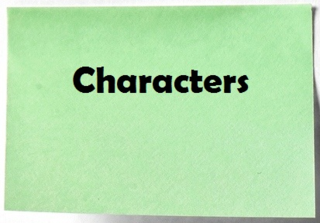 story aims to establish a bond between the main character and the reader. After all, why would a reader continue to read a story about an unlikeable character?
story aims to establish a bond between the main character and the reader. After all, why would a reader continue to read a story about an unlikeable character?
Granted, there are thematic exceptions, in which the writer’s goal is to examine evil or to convince readers to dislike a character who generally is accepted by society (such as a powerfully businessman who in truth is ruthless). Still, in sush cases often the narrator is likeable (such as Nick in F. Scott Fitgerald’s The Great Gatsby) or we see the tragedy of the main character and feel for his failure (such as Shakespeare’s Macbeth). In any case, such strategies often are the exception to how characters are portrayed in stories.
A writer can establish a bond between the main character in a number of ways:
g Identification –Any time the reader believes he has something significant in common with the character, bonding can occur. For example, in science fiction tales, the character may feel that his intelligence makes him an outcast in society, a trait many science fiction readers themelves possess. In a romance, the heroine’s longings and desires may match those of the reader who also wishes such love.
g Sympathy – A writer also can play off our culture’s values to create a bond. For example, placing a character in jeopardy, showing him undergoing some hardship, portraying him as an underdog, or having him make ethically correct choices that also make him vulnerable all generate empathy in the reader.
g Likeability – Though the reader may not share anything in common with a character, the latter still can be likeable. One way to create a “friendly” character is to give them some unique, quirky trait; for example, Star Wars’ C3PO possesses a neuroticism that is humorous. Avoid cliches, however; the android that misunderstands basic human words or sayings (such as beieving a homemaker is someone who works in the construction trades) has been overdone in science fiction.
g Inner conflict – When a character must make a difficult choice because of an inner conflict, readers can better relate to him. After all, readers themselves often face inner conflicts in which they must make a difficult choice.
g Believability – The more real a character is, the greater the chances that a reader will take a liking to him. While a character, such as an Alpha male hero of an epic fantasy, can provide wish fulfillment (such as being strong and always getting the girl) and hence make the character likeable, he also won’t resonate on a deep level with a reader. Generally a reader cannot identify with or find sympathy for a character who isn’t believable.
Need an editor? Having your book, business document or academic paper proofread or edited before submitting it can prove invaluable. In an economic climate where you face heavy competition, your writing needs a second eye to give you the edge. Whether you come from an urban area like California's Inland Empire or a rural area like Loving County, Texas, I can provide that second eye.
<A HREF="http://ws-na.amazon-adsystem.com/widg... Widgets</A>Related articles
 Constructing your story's main character
Constructing your story's main character Select a viewpoint that gives you flexibility
Select a viewpoint that gives you flexibility
August 8, 2014
Get your book before potential buyers’ eyes
One of  the great challenges of marketing your book is getting is before potential buyers’ eyes. This can be done via the Kindle ebook bestsellers list on Amazon.com at a limited cost to you. Here’s how.
the great challenges of marketing your book is getting is before potential buyers’ eyes. This can be done via the Kindle ebook bestsellers list on Amazon.com at a limited cost to you. Here’s how.
First, the very same day that your ebook is available for sale, peruse the top 20 bestselling ebooks in the category that your title would appear. Identify three or four that are very similar to your title; you may need to go through the top 40 or even top 60 to find those books. Next, purchase a copy of those three or four titles. Then buy a copy of your own book.
When others call up those three or four bestselling books’ pages at Amazon.com, the odds are good that your new title will show up in the section entitled “Customers Who Bought This Item Also Bought”. Your title also likely will appear below the reviews in a section entitled “What Other Items Do Customers Buy After Viewing This Item?”
If you can get a few others (such as family members and close friends) to do this as well, you further increase the odds that your title will appear on these other books’ sales pages. This is especially true in categories where the number of books sold on an hourly basis is low or that have few titles for sale.
While that alone won’t gaurantee book sales, it does improve the chances of them. After all, more people – especially those interested in titles just like yours – are apt to see your ebook. Further, people who compare books to make the best lone purchase hopefully will see that your title is less expensive yet just as informative and so select your ebook over the bestseller. Some potential readers may make multiple purchases or sample your book, the latter of which can lead to some sales. These ales in turn can push your title onto the bestseller list, which usually guarantees additional purchases.
Is this rigging the system? No more so than big publishing houses that buy shelf space in chain bookstores at entranceways and on endcaps to get people to see their authors’ books. In any case, the real determinant of how well your book sells will depend on its quality. If a couple of people buy your book (because they saw it on page for a bestselling book) but you fail to deliver content or have dozens of typos, they’ll probably write bad reviews and give it one or two stars – which ultimately hurts your sales.
Need an editor? Having your book, business document or academic paper proofread or edited before submitting it can prove invaluable. In an economic climate where you face heavy competition, your writing needs a second eye to give you the edge. Whether you come from a big city like San Jose, California, or a small town like Boar Tush, Alabama, I can provide that second eye.
<A HREF="http://ws-na.amazon-adsystem.com/widg... Widgets</A>Related articles
 Download editor's self-publishing book free
Download editor's self-publishing book free Distribute ebook on variety of ereaders, tablets
Distribute ebook on variety of ereaders, tablets '7 Minutes a Day' now available in paperback!
'7 Minutes a Day' now available in paperback!



